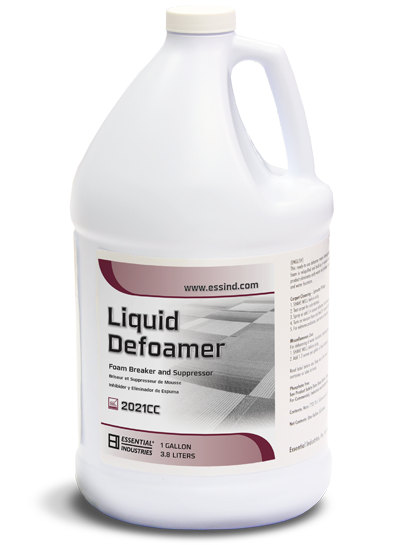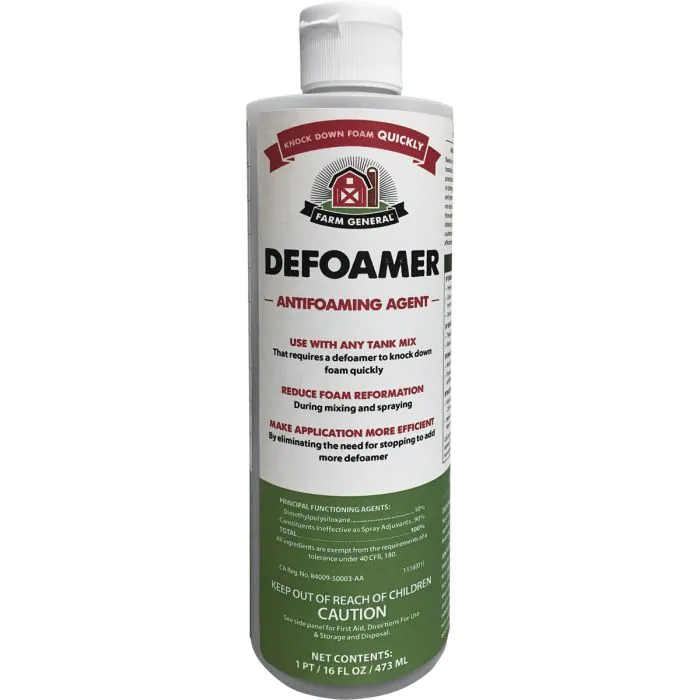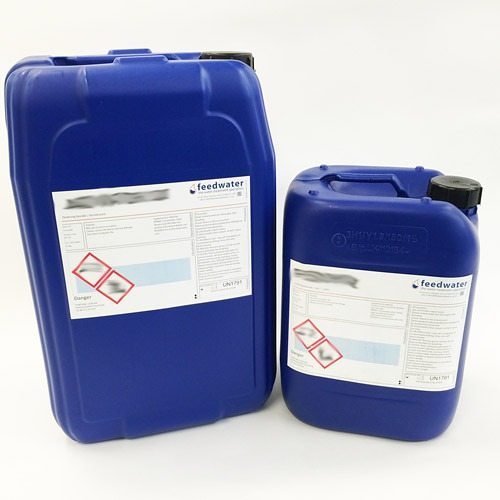The Newest Developments in Chemical Defoamer Science for Improved Effectiveness
The Newest Developments in Chemical Defoamer Science for Improved Effectiveness
Blog Article
Checking Out the Conveniences of a Chemical Defoamer in Manufacturing and Manufacturing
The combination of chemical defoamers in manufacturing and manufacturing processes uses a strategic benefit by addressing among the persistent difficulties in commercial operations: foam control. Chemical Defoamer. Recognizing the nuances of different kinds of defoamers and their particular applications can disclose their significant influence on operational effectiveness and item quality. As makers strive to enhance procedures and enhance client complete satisfaction, the role of chemical defoamers comes to be progressively vital. Yet, the concern continues to be: how do these compounds basically alter the landscape of production performance and cost-effectiveness?
Value of Foam Control
While the presence of foam in manufacturing processes can in some cases seem harmless, effective foam control is important for enhancing functional effectiveness and item high quality. Foam can disrupt different stages of production, resulting in ineffectiveness that may extend and enhance costs processing times. In industries such as food and drink, drugs, and chemicals, unchecked foam can block devices, interrupt automated systems, and ultimately result in product incongruities.

Carrying out reliable foam control strategies not only enhances efficiency however additionally sustains governing compliance in sectors where foam can cause environmental worries. By making use of chemical defoamers, suppliers can reduce these difficulties, making sure smoother procedures and higher-quality final result. Ultimately, prioritizing foam control is an essential element of manufacturing that can yield significant advantages in terms of performance, item, and safety and security integrity.
Kinds Of Chemical Defoamers
What kinds of chemical defoamers are readily available for making procedures, and exactly how do they differ in application? Chemical defoamers can be categorized into 3 major kinds: silicone-based, organic, and inorganic defoamers. - Chemical Defoamer

Organic defoamers, commonly acquired from natural oils or fats, are efficient in a series of applications, including food and beverage production. They are typically favored for their lower toxicity and environmental influence, ensuring compliance with market laws.

Each type of defoamer serves distinctive functions based upon the chemical structure and the particular needs of the production process, permitting makers to choose one of the most suitable alternative for their Recommended Reading specific needs.

Benefits in Production Efficiency
Chemical defoamers play a vital role in boosting making efficiency by efficiently regulating foam generation during various procedures. Foam can prevent manufacturing rates, interrupt devices operation, and result in costly downtime. By including chemical defoamers, manufacturers can alleviate these issues, ensuring smoother operations and raised general performance.
Making use of chemical defoamers assists optimize the functional efficiency of equipment such as mixers, pumps, and reactors. With decreased foam, these makers can run at their intended capability, minimizing the danger of overflow and making it possible for regular handling. This causes better source usage and higher throughput.
Additionally, chemical defoamers promote faster processing times by decreasing the time required for foam removal. This velocity can dramatically impact production schedules, enabling makers to satisfy client need more properly. In addition, making use of defoamers adds to reduce power intake, as equipment operates a lot more efficiently with decreased foam disturbance.
Influence on Item Top Quality
Foam control is not just essential for maintaining efficiency in manufacturing procedures yet additionally plays a substantial duty in making sure product quality. Excessive foam can present air into solutions, bring about incongruities in the end product. This can materialize as flaws such as spaces, uneven appearances, or below average surfaces, which undermine the desired quality and performance of the item.
Additionally, foam can impede the homogeneity of mixes, resulting in irregular circulation of energetic ingredients. In sectors such as finishes, cosmetics, and food manufacturing, this can result in variations in shade, taste, and overall performance. By utilizing a chemical defoamer, producers can mitigate these threats, making sure that products fulfill rigid high quality specifications.
Furthermore, controlling foam can boost the security of emulsions and suspensions, which is important for guaranteeing shelf-life and customer fulfillment. With improved item consistency and lowered problems, manufacturers can accomplish higher criteria of quality control, ultimately bring about enhanced consumer count on and brand commitment.
Cost-Effectiveness and ROI
Efficient foam informative post control not just enhances item quality but likewise adds considerably to the total cost-effectiveness of manufacturing processes. Using chemical defoamers reduces foam-related concerns, which can otherwise cause manufacturing delays, devices malfunctions, and boosted power intake. By reducing foam, makers can maximize their procedures, resulting in higher throughput and effectiveness.
Spending in chemical defoamers can yield a considerable roi (ROI) The preliminary prices linked with these additives are typically balanced out by the financial savings understood from reduced downtime and boosted material yield. top article Additionally, improved item quality can decrease waste and remodel prices, better bolstering monetary performance.
On top of that, reliable foam control can lead to reduced water and energy usage, adding to reduced functional expenses. This is specifically vital in sectors where source performance is paramount. By integrating chemical defoamers into their procedures, manufacturers can achieve long-term savings while maintaining affordable rates in the market.
Final Thought
Finally, the combination of chemical defoamers in production and production processes is important for optimizing operational efficiency and boosting item top quality. Efficient foam control contributes to improved equipment efficiency, lowered handling times, and reduced downtime, eventually resulting in significant price financial savings. Furthermore, consistent product solutions foster client contentment and brand loyalty. The advantages offered by chemical defoamers not just sustain regulative conformity but additionally give an one-upmanship in the manufacturing landscape.
The combination of chemical defoamers in production and manufacturing processes provides a strategic benefit by addressing one of the consistent obstacles in commercial operations: foam control.While the visibility of foam in producing procedures can in some cases appear harmless, reliable foam control is essential for maximizing operational performance and product high quality.Chemical defoamers play an important duty in enhancing making efficiency by successfully controlling foam generation during numerous processes.Furthermore, chemical defoamers assist in faster handling times by lowering the time required for foam elimination. Additionally, the usage of defoamers adds to lower energy usage, as equipment runs extra efficiently with lowered foam interference.
Report this page